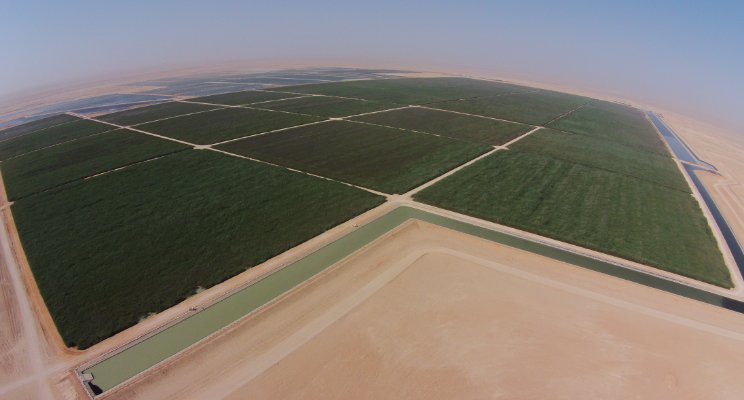

MUSCAT – Petroleum Development Oman (PDO), the nation’s biggest producer of hydrocarbons, has unveiled a raft of initiatives to deal with the prodigious quantities of produced water – naturally occurring water produced as a byproduct along with oil and gas – being generated daily across its vast concession. Output of produced water is projected to exceed 1 million cubic metres per day (m3/day) from 2019 onwards, up from 910,000 m3/day presently.
Under a new strategy adopted by the majority government-owned operator, an increasing share of this output is proposed to be utilised for a number of ‘green’ projects rather than dispose it off in deep wells. The strategy, espousing a ‘Reduce, Reuse and Relocate’ (3R) philosophy, seeks to convert what has essentially been a waste product into a sustainable resource for a number of value-adding oilfield, agricultural and environmental initiatives.
Some of these initiatives were outlined at PDO’s first Sustainable Water Management Day hosted recently by the company under the auspices of Ali bin Mohammed al Abri, Under-Secretary of the Ministry of Regional Municipalities and Water Resources.
Technical Director Amran al Marhubi said PDO aims to slash the amount of produced water being disposed of in deep water wells from 52 per cent presently to 22 per cent by 2025. This is sought to be achieved via the implementation of a slew of initiatives, notably a plan to supply treated water from Rima to a ‘Million Date Tree Project’.
Also envisioned is the construction of a pipeline carrying produced water from Yibal to Lekhwair, the expansion of the Nimr reed bed wetlands, and implementation of the Runib Water Injection Project, among other plans for the optimization of water production.
The official was quoted by Al Fahal, PDO’s monthly newsletter, as stating that the sound management of produced water – estimated in excess of 300 million cubic metres annually – presents both formidable challenges to the company, as well as opportunities for its sustainable use.
“For instance we produce water then we spend both money and energy to dispose of it deep into the ground whilst at the same we need near potable or even higher quality water to support oil production, for example for the generation of steam for injection or for use in making polymers and fracking,” said Al Marhubi, noting that water related activities, which include water lifting, injection, shallow and deep disposal, and steam generation, account for 57 per cent of PDO’s power consumption.
With a view to exploring the potential use of treated produced water in commercial-scale agricultural activities, PDO is collaborating with German technology firm Bauer in a biosaline agriculture trial covering 13 different plant species, according to Amran. The cultivation of eucalyptus, acacia, conocarpus, casurian and prosopis, among other plant species, is being trialled on a 20-hectare plot. The results have been promising thus far, with a number of crops seen as potentially suitable for commercial cultivation. The potential to generate oil seeds and biomass for bioenergy schemes is also being explored, he said.
Under a contract with PDO, Bauer’s local subsidiary is currently treating around 115,000 m3/day of produced water at its award winning reed bed wetlands at Nimr in the south of PDO’s concession. The wetland project is proposed to be expanded in 2019, allowing for a further 70,000 m3/day of produced water to be treated this sprawling facility.
By channeling these volumes of produced water to these wetlands rather than dispose it in deep wells with the aid of energy-intensive pumps, PDO stands to save around 17 MW of energy annually (equivalent to 40 million m3/day of natural gas).
“These ‘green’ initiatives will minimise the environmental footprint from disposal, maximise reject water use and enhance PDO’s reputation in preserving aquifer water, a precious resource in a water-scarce country. It will also increase energy efficiency, generate cost savings and assure sustainable water for production support,” the company added in its 2017 Sustainability Report.
Oman Observer is now on the WhatsApp channel. Click here



